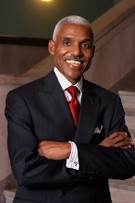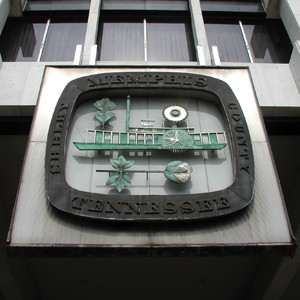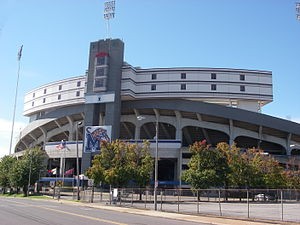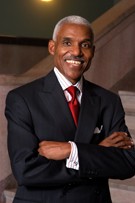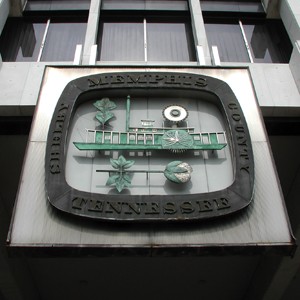Ten years ago, not many people would have foreseen Memphis in the grip of NBA Playoffs fever. Nor would they have guessed that the city and county school systems would be forcibly merged. Or that suburban homebuilders would scale back or go broke. Or that suburbs would be seriously talking about starting their own school systems (well, maybe that one was predictable).
So how does the unthinkable become thinkable? I’ve been thinking about that in light of a new book by a 93-year-old Memphian, a 36-year-old issue of our company’s monthly magazine, and the upcoming debate over the City of Memphis budget and various proposals to avoid a property tax increase. Sometimes the unthinkable is doable, sometimes it isn’t, and sometimes it just take a lot of patience. Here are three examples.
NO WAY: STATE INCOME TAX
Tennessee is one of a handful of states that does not tax earned income. Every once in a while, a maverick comes along and points out the inequity of the state tax structure that relies on the highest sales tax (even on groceries) in the country. I have been reading “Lewie,” an autobiography by the esteemed lawyer and Republican blueblood Lewis Donelson.
In the early 1960s, Donelson was named to a “Committee of 100” to plan the future of Tennessee.
“I had gotten interested in Tennessee’s financial structures, especially the pernicious aspects of the state’s heavy general sales tax,” he wrote. “This resulted in lower-income citizens being taxed a much higher percentage of income than upper-income individuals.” Then as now, the state tax structure did not grow as rapidly as inflation, and there were frequent increases in the sales tax. Donelson argued for a state income tax.
“I made a motion and the committee adopted a resolution recommending an income tax. The only result of this resolution: the death of the Committee of 100.”
Donelson was anything but a screaming radical, but he was an excellent lawyer and a good enough politician to serve a term on the Memphis City Council and stints as an aide to two Tennessee governors, neither of whom was crazy enough to propose a state income tax while in office. That kamikaze mission was undertaken by another Republican governor, Don Sundquist. His eternal reward was to be shunned by his party and shouted at by crowds of angry protesters at the Capitol for supporting an income tax that, once again, went nowhere.
MAYBE A WAY: TAX ALTERNATIVES
Some members of the Memphis City Council suggested bringing the income tax up again if for no other reason than to stir things up in Nashville. Other members suggested a payroll tax to get revenue from people who work in Memphis or its suburbs but live outside of Shelby County. That idea isn’t going anywhere either as long as the city’s biggest employer — FedEx — opposes it. FedEx CEO Fred Smith has said publicly many times, “if you want less of something, tax it.” End of story.
A more promising longshot was proposed by Council member Janis Fullilove. She said nonprofits and companies that have received PILOTs or payment-in-lieu-of-taxes tax breaks should pay more because they own so much property. It’s not like nobody else at City Hall knows the score. On the contrary, everyone knows the score. At a retreat for the council and administration earlier this year, Housing and Community Development Director Robert Lipscomb handed out charts showing how little taxable property there is in Memphis relative to the full size of the city.
To take one example, the nonprofit hospital giants have big salaries and lots of free cash. Here’s a column from a couple of years ago. Blogger Tom Jones has been a bulldog on the issue of PILOTs for several years. Here is one particularly informative post on how PILOTs became contagious in Memphis and Shelby County. But voices in the wind are easily ignored or dismissed. The same goes for another study of PILOTs or a blue-ribbon committee, a typical Mayor A C Wharton “solution.” What is needed is more spark and some fire.
At least three things would have to happen for Fullilove’s proposal to get anywhere. One, Wharton would have to embrace it, as the mayor of Boston did last year. Two, some key nonprofits would have to break ranks and agree to voluntarily increase their payments to local government, putting pressure on others to follow suit. And, three, The Commercial Appeal would have to use some of its reporting clout to investigate nonprofits (as the Boston Globe did), and influential organizations such as Memphis Tomorrow and the Chamber of Commerce would have to lend support.
YES WAY: BIKE LANES AND THE HARAHAN BRIDGE
In 1976, “city of memphis” magazine, the forerunner of Memphis magazine, ran an article by Max Heine entitled “Bicycling Memphis.” It is uncanny how it foreshadows developments 35 years later.
The author argued that there were 283,000 (!!!) “admitted pedallers” in Shelby County and that bike lanes should be installed on streets “separated from traffic by a stripe or curb, with signs designating the route.” A planner with the Memphis and Shelby County Planning Commission mapped out 25 routes, including one from Overton Park and Overton Square to downtown and and another connecting the fairgrounds and the the city’s three colleges. The cost of the three main routes was estimated at $25,000-$30,000. The chairman of the City Council “was not familiar with the proposed routes but pointed out that the city had replaced many of the curbside sewer covers” that could obstruct riders.
Then there was this bit of blue-sky thinking:
“One exciting proposal calls for a pedestrian/bike crossing on one of the abandoned car lanes of the Harahan railroad bridge . . . About $6 million in federal funds is available through the Urban Bikeway Demonstration Act.”
The article said “bikommuting” was an emerging issue, and noted that the second annual Bicycle Commuter Day was scheduled for May 28, 1976.
Fast forward to 2012. The Harahan Project is alive and well, and May 18th is officially Bike to Work day.

